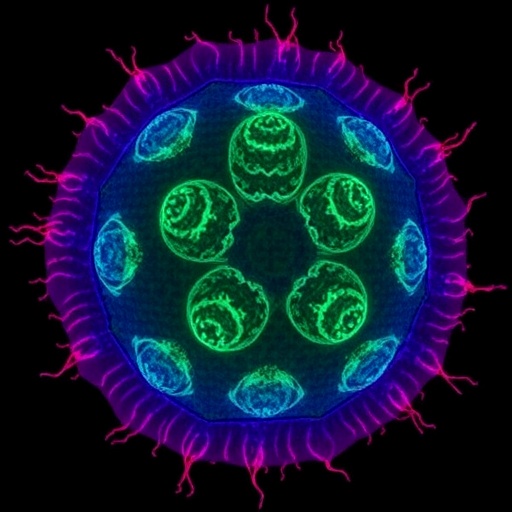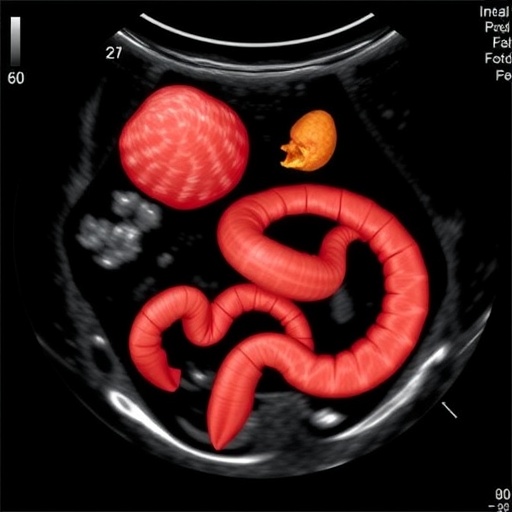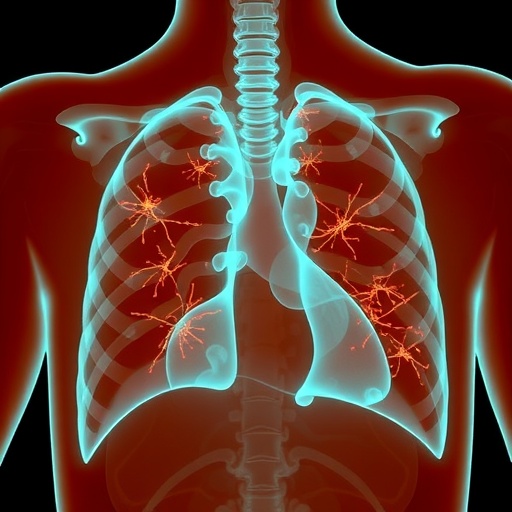PROTECT YOUR DNA WITH QUANTUM TECHNOLOGY
Orgo-Life the new way to the future Advertising by AdpathwayIn a groundbreaking exposé released this year, pediatric research that was conspicuously absent from the recent MAHA report has come to light, revealing profound shifts and new understandings in child health sciences. Authored by D. Keller on behalf of the Pediatric Policy Council, this pivotal work delves deep into the nuances of pediatric health, presenting a comprehensive scientific narrative that redefines how we approach child well-being in clinical and policy spheres.
Emerging from a critical evaluation of existing pediatric studies, Keller’s research underscores the subtle yet significant biological and environmental determinants that shape childhood development. These findings challenge previously held assumptions in pediatric care, particularly emphasizing the interplay between genetic predisposition and early environmental exposures. This dual influence underscores the complexity of child health, advocating for more tailored and dynamic preventive strategies.
The article meticulously details the molecular mechanisms underlying common pediatric conditions, illustrating how early life interventions can alter developmental trajectories. For instance, the research highlights epigenetic modifications triggered by nutritional deficiencies, pollutants, and psychosocial stressors, which collectively modulate gene expression patterns critical for neurodevelopment and immune function. Such evidence pushes the frontier of pediatric medicine toward a more precise, personalized approach.
Furthermore, Keller draws attention to the remarkable advancements in pediatric pharmacology, where novel drug delivery systems and formulations have been optimized specifically for children. These innovations not only improve therapeutic efficacy but also minimize adverse effects, marking a significant leap from the traditional one-size-fits-all model that has historically dominated pediatric treatment landscapes.
Central to the discourse is the exploration of pediatric immunology, where new insights into vaccine response variability among diverse populations are reshaping immunization strategies. The article points out how genome-wide association studies have identified biomarkers predictive of vaccine efficacy, thereby paving the way for customized immunization schedules that maximize benefits while reducing risks.
The exposé does not shy away from the pressing issues of pediatric mental health, integrating neurological and psychological research to present a holistic view of child well-being. Keller’s analysis includes cutting-edge neuroimaging studies revealing how early life adversities structurally and functionally alter brain circuits involved in emotion regulation, cognitive processing, and social behaviors. This comprehensive understanding is paramount for designing effective interventions.
Environmental health factors are another critical dimension explored, particularly the impact of air pollution and toxicants on respiratory and cardiovascular pediatric outcomes. Through rigorous epidemiologic data synthesis, the research demonstrates clear causal pathways linking industrial exposure to increased incidences of asthma, bronchitis, and even metabolic disorders in children, reinforcing calls for stricter environmental policies.
The article also explores the technological frontiers in pediatric diagnostics, such as the utilization of artificial intelligence and machine learning algorithms that enhance early detection of developmental delays and rare diseases. These high-throughput computational tools allow clinicians to analyze large datasets swiftly, identifying subtle patterns that may elude conventional assessment methods.
In addition to diagnostics, the research champions advances in pediatric regenerative medicine, where stem cell therapies and bioengineered tissues are beginning to revolutionize treatments for congenital anomalies and chronic conditions. Keller underscores the translational potential of these biotechnologies, yet also cautions about the ethical considerations and long-term safety evaluations that must be rigorously addressed.
Significant attention is given to the socio-economic and policy implications of pediatric research. The Pediatric Policy Council’s voice through this article underscores the necessity for integrating scientific advancements into healthcare frameworks that prioritize equity and access. Disparities in health resources and outcomes are mapped, advocating for policies that bridge gaps exacerbated by socio-economic stratifications.
Keller’s treatise also importantly critiques the existing frameworks of clinical trials involving pediatric populations. Highlighting the methodological challenges and ethical imperatives, the article calls for innovative trial designs that can ethically and effectively generate high-quality evidence to inform pediatric therapeutics and interventions.
Moreover, the article brings to light the critical role of family and community engagement in pediatric health research. It stresses that incorporating the voices and experiences of patients and their caregivers enhances the relevance and applicability of research findings, fostering trust and improving health outcomes.
The concluding sections of the article envision the future trajectory of pediatric research, emphasizing interdisciplinary collaborations that integrate genomics, data science, behavioral health, and environmental science. Keller advocates for sustained funding and international cooperation to foster innovations that will transform child health paradigms globally.
In essence, this compendium of pediatric insights not only fills the gaps left by the MAHA report but also ignites a transformative dialogue on child health science. Keller’s authoritative narrative is poised to become a seminal reference, shaping policies, clinical practices, and research agendas that will safeguard the health of future generations with unprecedented precision and compassion.
Subject of Research: Pediatric health science advancements and their implications not addressed in the MAHA report.
Article Title: The Science of Health: Pediatric Research that should have been in the MAHA report
Article References:
Keller, D., On behalf of the Pediatric Policy Council. The Science of Health: Pediatric Research that should have been in the MAHA report. Pediatr Res (2025). https://doi.org/10.1038/s41390-025-04511-1
Image Credits: AI Generated
DOI: https://doi.org/10.1038/s41390-025-04511-1
Tags: biological and environmental determinants in childhoodchild health sciences advancementsearly life interventions for child developmentepigenetics in pediatric healthgenetic predisposition and environment interactionMAHA report omissionsmolecular mechanisms of pediatric conditionsnutritional deficiencies and childhood developmentpediatric health research insightspersonalized pediatric medicine approachespsychosocial stressors on child well-beingtailored preventive strategies in pediatric care


 3 hours ago
6
3 hours ago
6





















 English (US) ·
English (US) ·  French (CA) ·
French (CA) ·